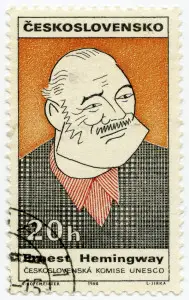 Writing a blog, an article, a press release or a white paper may not be the same as writing a best-selling novel, but the principles that nourish the content remain the same. There’s a reason why the most avid readers tend to make the best writers – and it’s because we learn from our forefathers; the greats that came before us, made mistakes, and were able to educate others on how to avoid those mistakes in the future.
Writing a blog, an article, a press release or a white paper may not be the same as writing a best-selling novel, but the principles that nourish the content remain the same. There’s a reason why the most avid readers tend to make the best writers – and it’s because we learn from our forefathers; the greats that came before us, made mistakes, and were able to educate others on how to avoid those mistakes in the future.
While the rules behind online copy are constantly changing, with new algorithms from Google making the search for sensational SEO more complex every day, the basics of good writing are eternal. At the end of the day, no matter what’s changed on the technical side, your readers are always going to be drawn towards good writing with a powerful impact. With that in mind, it makes sense to learn from the best when it comes to developing our content marketing strategies.
“There are older, and simpler, and better words, and those are the ones I use” – Ernest Hemingway
Sometimes, longer words are essential when making your point. In fact, using long words in your content can help to show off a certain voice, or give your copy a sense of personal style. However, that doesn’t mean you should use them everywhere. Simply plugging your copy full of long and complicated words doesn’t make you look smart or insightful – it makes your copy awkward, and can make you appear arrogant and pretentious.
When Faulkner criticised Hemingway on his limited word choice, Hemingway replied: “Does he really think big emotions come from big words? He thinks I don’t know the ten-dollar words. I know them all right. But there are older, and simpler, and better words, and those are the ones I use.”
“Unless one is a genius, it is best to aim at being intelligible” – Anthony Hope
Ever heard of a barrier in communication?
Content marketers frequently place roadblocks between themselves and their audience, by writing without clarity. When they don’t know the answer to something, they try to compensate with complicated words and nonsense, hoping that the extra weight of information will somehow cover up a lack of understanding. Using jargon won’t impress your reader. All it does is boost your ego, and leave your audience blinking blankly at a block of unintelligible text.
The job of a content writer is to help people understand something; to teach, inform, or entertain. Stop attempting to be a genius, and just be a writer!
“A good title is the title of a successful book” – Raymond Chandler
This isn’t the first time that headlines and subtitles are mentioned on this blog, and it probably won’t be the last. It’s impossible to overestimate just how valuable a title can be, particularly in the world of content marketing. However skilled they are at thinking up fresh, engaging content, copywriters often fall short of the mark when it comes to headlines. They might simply go with the flow instead of trying something new, or employ horrible techniques like those used in “click-bait” style articles.
Rather than following the crowd, check your analytics, watch the number of social shares you get, and stick to headline techniques that actually work for your business.
